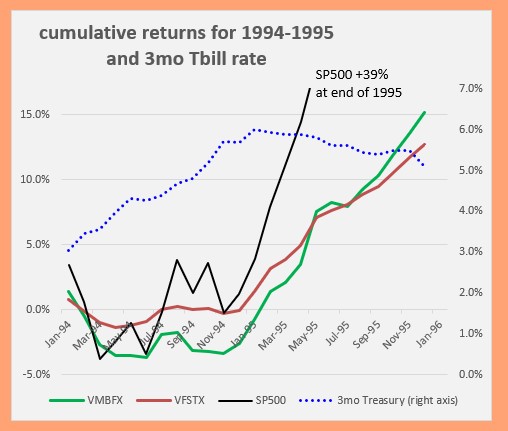Yes, -20% for 2022 seems plausable.
7yr Treasury was 1.55% at beginning of 2022 vs 2.96% today... a decline of 1.41% times 6.9 duration is -9.729%... close to the -9.3% YTD that you noted.
If rates rise another 2%, then * 6.9 duration is a price decline of another 13.8%.
So total price decline of 23.1% for the year, partially offset by say 2.3% of interest earnings would be a 20.8% decline for 2022.
Your numbers are right. It's not a pretty picture is it? And if rates continues to rise in 2023 then we may have to wait (2 x maturity) - 1 to recover. Maturity of TBM is 9 years, so potentially up to 17 years.
In this situation TBM might be a good choice for someone 20 years or more from retirement but not in retirement.
Another 11.5% decline in TBM in 2022 is not something I would want to contemplate.
Any suggestions from the forum on better approaches for a retired person?

